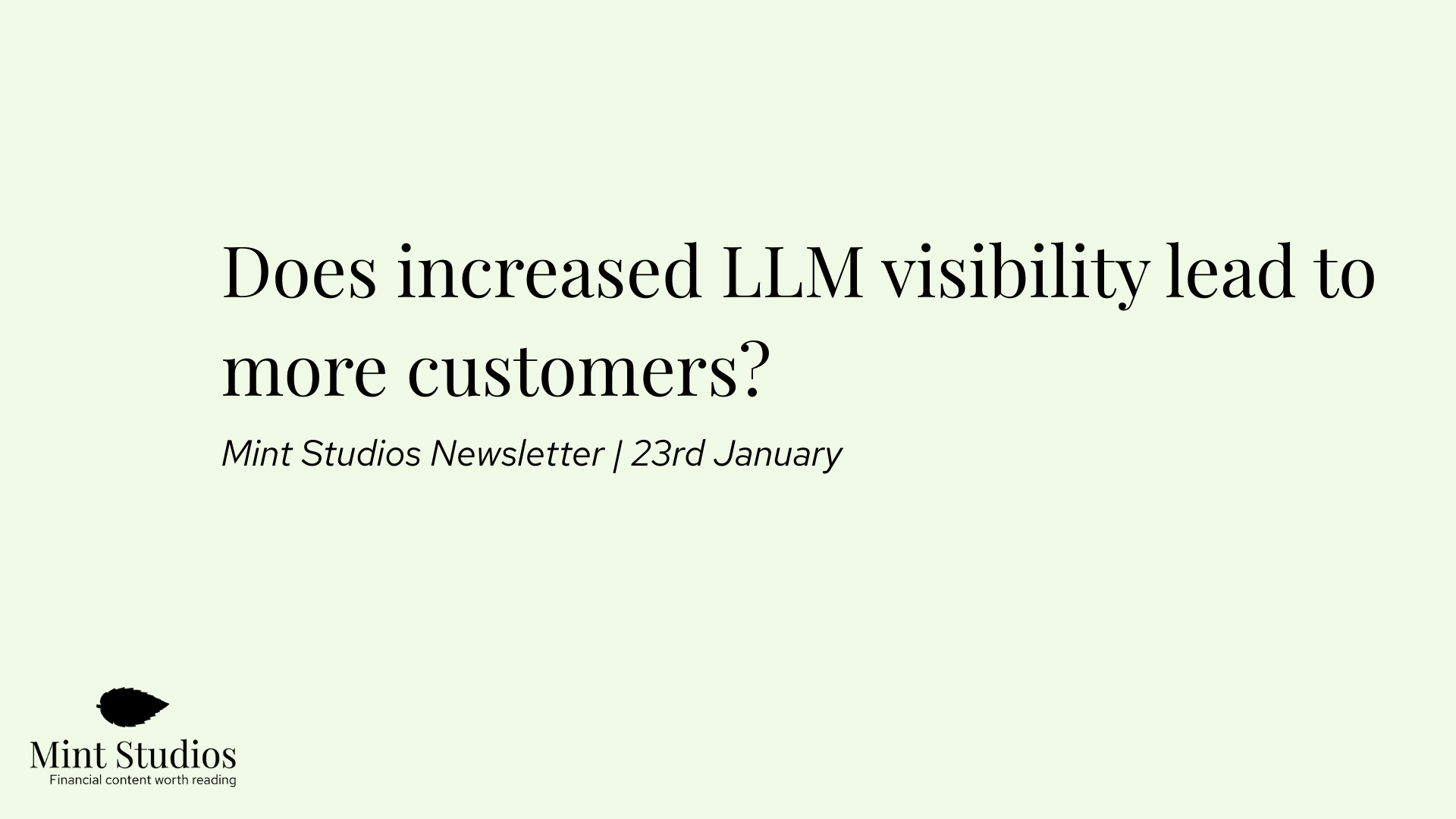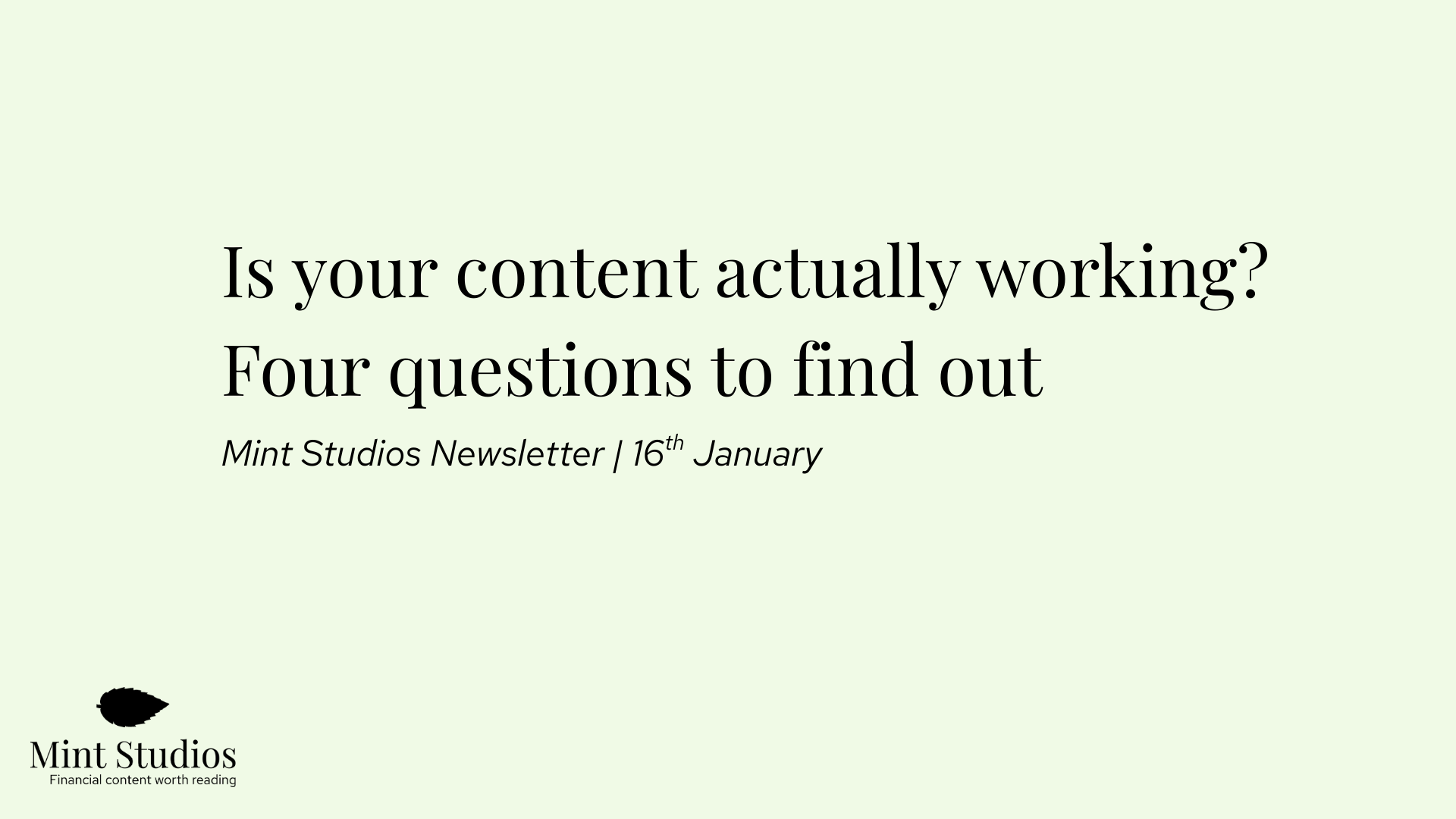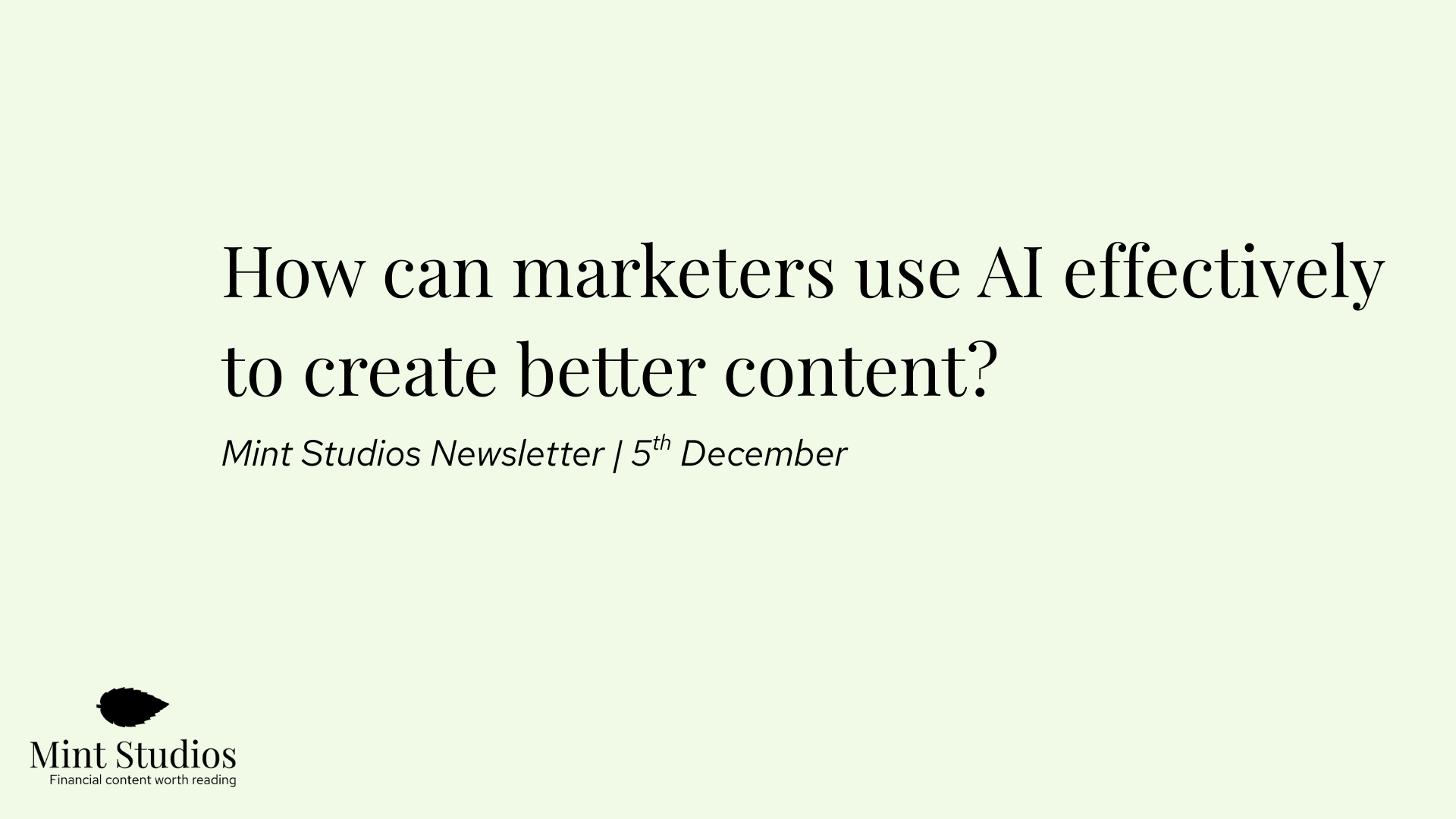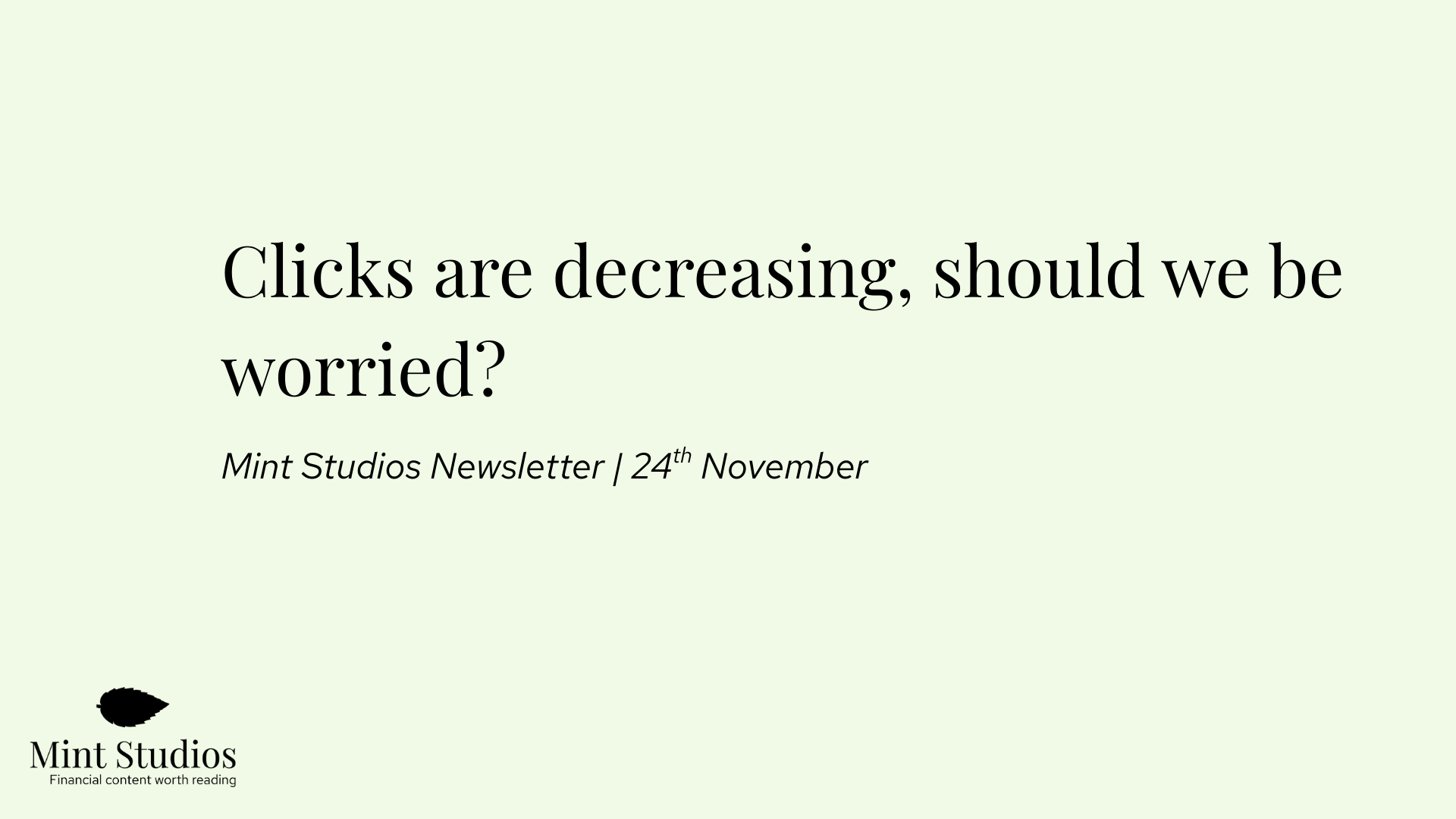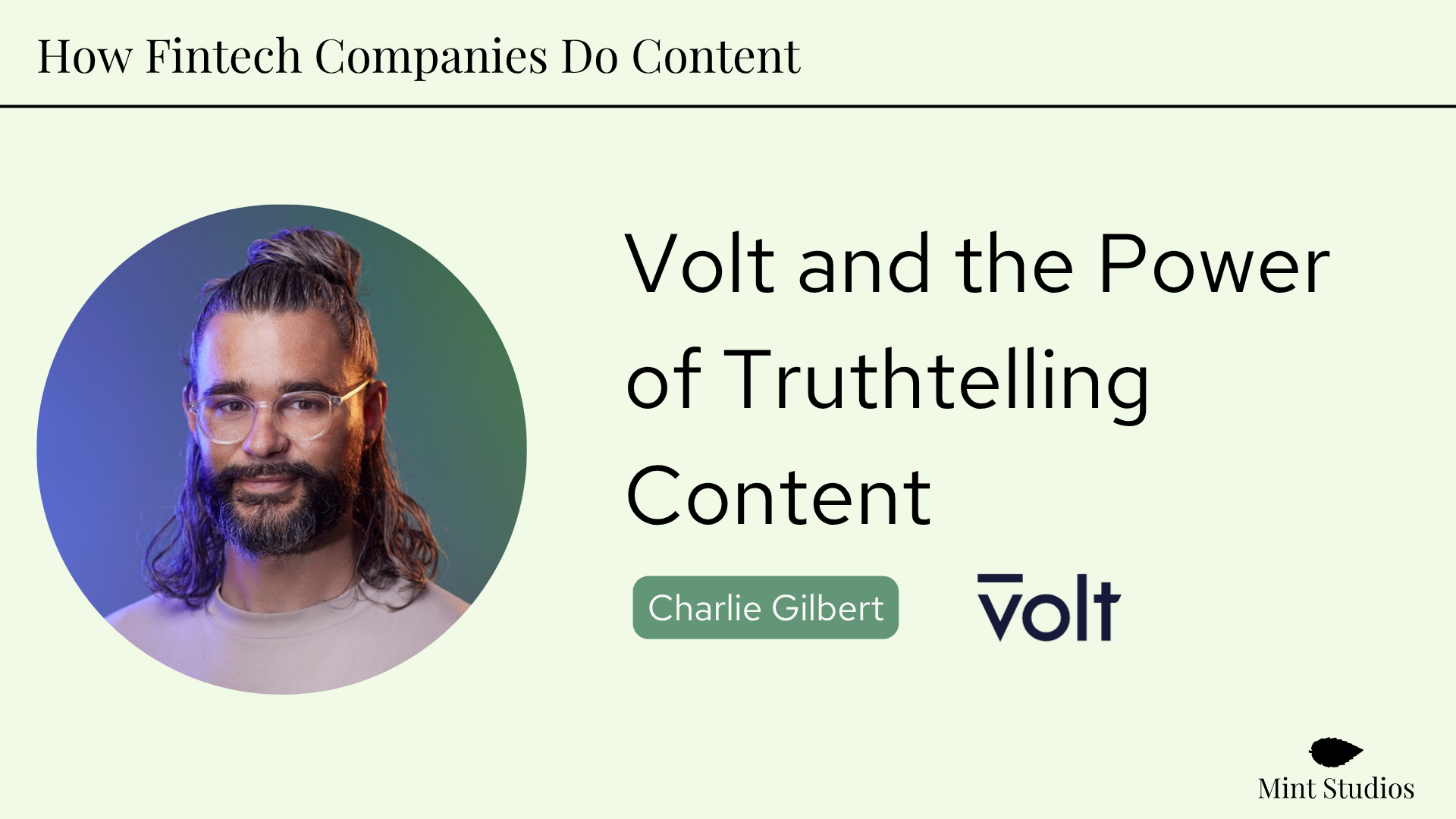A big part of content marketing is learning about other people’s strategies, reading case studies and doing your own experiments.
It’s why I take part in so many online communities, ask a lot of questions and interact with other marketers: the industry is continuously evolving, and it’s only those who are up to date with current trends that can seriously grow their traffic and conversions with content.
Which is why I’m excited and pleased to have one of the top 50 freelance content marketers/writers on a short written interview today: Dom Kent. Although Dom doesn’t work in Fintech specifically, as a fellow B2B content marketer his tips and advice are very relevant for anyone who is looking to acquire customers organically through content marketing.
Let’s dive in!
About Dom Kent
Dom Kent is a UK freelance content marketer who works in B2B tech. He spends most of his time developing content strategies or writing blog posts. His main role is head of communications at Mio, a software that integrates various messaging platforms (Slack, Microsoft Teams, Cisco Webex) into one.
In 2020, The Mio blog reached hundreds of thousands in organic traffic, and conversions are at an all time high. In fact, content marketing is Mio’s main customer acquisition channel.
I wanted to get Dom on to ask him about his experience in B2B content marketing, his approach to growing the Mio website and his thoughts on content marketing in 2021
Before we dive into the meat of content marketing, here’s a bit about Dom:
1. What is your favourite thing about content marketing?
If I had to pick a single thing, it would be the writing. I love writing and always wanted to be a writer of some kind. I just didn’t know I wanted to be a content marketer until I understood what content marketing actually was. I love writing a blog post from scratch, I love writing a brief, I love editing other people’s work.
2. Why did you get into content marketing rather than paid marketing?
I hate ads 🤷♂️
3. What do you do in your various roles as a freelance content marketer?
I break it down into 6 sections:
- Planning
- Creating
- Optimising
- Publishing
- Promoting
- Updating
There’s a million sub tasks in these but I offer some or all of these to each of my clients.
Content marketing in 2021
A lot of what we’ll be talking about here is also covered in Dom’s excellent piece on the State of B2B Content Marketing - a must-read for anyone who is involved in B2B content marketing.
A few things stood out in his article:
- Marketers face a serious challenge in getting their content to stand out in a world where we are bombarded with adverts and content all day long.
- Demonstrating that content marketing does work has been hard for marketers but there is a handy formula for calculating content marketing ROI
- Showing off the output of your content marketing is dangerous if you haven’t committed to it.
- Content marketing has never been and will never become an overnight thing.
Content marketing is hard. It’s the glue that holds writing and business together. It’s what justifies spending money on content. After all, what’s the point in publishing content if there is no ROI for the business?
That’s what content marketing is all about. It’s why content marketers are expensive, and in my experience, it’s also why the writing is a lot better: when the writer is personally committed to making a piece that brings the business customers, the quality is often a lot higher.
4. What is the first thing you would do if you were starting a content marketing strategy from scratch?
See what already exists. Often, my clients have started their own blog but without any direction. With my latest customer, they had over 20 blog posts but had all been written in the style of news. Once I reviewed the existing content, analysed the traffic and sources, they became easy wins to turn into evergreen posts (or delete them so they didn’t have a negative impact on SEO if they had 0 views in the last 6 months).
5. How can B2B content marketers understand the problems facing clients and know what they want to read?
My personal feeling, backed by experience with clients who have different buyer personas, is that you should start with search engines.
It’s one thing to “write for Reddit” or answer loads of Quora questions, but what’s the biggest platform to get found on, to search for anything on? Google. Does that mean you should write “for Google”? No. But, you should optimise for Google so people actually find the content you spend money producing.
So, let’s look at Google: how many results on the first page are whitepapers? None. How many are eBooks? None. How many are blog posts, landing pages, and videos?
HERE’S WHERE IT GETS CYNICAL: Whether or not they want to read it, that’s why they’re being given. Until someone replaces Google as the biggest information engine, that’s the game to be playing.
6. SEO is still incredibly relevant, but it’s very competitive. How can B2B content marketers leverage SEO in 2021?
I’m so passionate about making THE BEST VERSION OF WHAT IS AVAILABLE ONLINE. It should be my tagline.
If you spend the time to make the best version of what is available online. When you do this, and I mean really go to town, you will be rewarded. What does this mean? It means stop skyscraping. It means be original. Include videos, screenshots, GIFs, podcasts. And optimise them all. It means be strategic with titles.
It also means A/B test to find your highest CTR on Google over time. Get better quotes from better people. Update that content when a new version of your product comes out, or the problem you solve evolves. Content marketing doesn’t end at production and publish, it’s a lifecycle.
Side note (Araminta): this is also something I also talk a lot about. I call it an “earned secret”, a term coined by John Bonini. I believe every piece of content should have something original, something you won’t find anywhere else. And you often only find those secrets by doing a lot of research, or by immersing yourself completely into an industry.
7. Do you think SEO will ever be too competitive and therefore not worth it?
Maybe one day for terms that exist today. I can’t think of a genuine example but let’s take Slack integrations. There’s only so many posts that can rank on the first few pages.
What happens when you launch a Slack app and want to write a post on the Best Slack Apps and include yours? It’s a simple tactic but by the time you launch your Slack app and your site, 5,000 other sites with higher domain authority and millions of links will outrank you.
A: As Dom says, people will never stop Googling. I saw a statistic the other day that 15% of all daily search traffic is completely new, keywords that have never been searched before. It took decades to build the largest search engine in the world and that’s not going to change this year.
8. How do you define personas at Mio? Do you implement the Jobs to Be Done framework or is it buyer personas?
It’s a little different at Mio. We do have the typical buyer personas and use cases like lawyers, customer success teams, and marketing agencies. But, for the most part, we segment by platform combination.
As Mio supports Slack, Microsoft Teams, Webex, and Zoom, lots of our articles are produced to capture long-tail platform keywords like “Connect Slack and Microsoft Teams” or “Integrate Webex and Zoom”. This is why Mio exists and we know what problems we solve.
9. How do you approach link building? Do you do any PR pieces?
In my content promotion strategy post, I included link building through
1) warm relationships - people I know; marketing friends
2) cold relationships - either emailing the editor of the top 10 results of my keyphrase on Google or in Slack communities
3) guest posting - for every post I create, we should be aiming to write a guest post in a higher DA blog with a link to our post.
10. How do you calculate content marketing ROI?
In simple terms, what’s the % returned on the cost of content marketing? Includes full-time people, freelancers, subscriptions, and tools. It’s quite easy to calculate at Mio because we don’t pay for any tools outside of WordPress and near 100% of clients are attributable to content marketing.
Here’s the formula taken from Dom’s piece at PR Fire:
At the highest level, calculating marketing ROI is simple. Marketers typically use this equation:
(Sales Growth – Marketing Cost) / Marketing Cost = ROI
In reality, this looks as follows:
((£1,000-£500) / £500) = 200%.
He also acknowledges that intangible benefits such as brand awareness, thought leadership and customer loyalty are hard (and often impossible) to quantify:
Intangible benefits of content marketing include:
- Brand awareness
- Social media engagement
- Community engagement
- Customer loyalty
- Customer advocacy
- Thought leadership
- Domain expertise
11. What are your favourite tips to make content engaging and easy to read?
Easy to read: There is no reason to make a paragraph more than two sentences. Find me a reason and I’ll find you a reason why you don’t need to :)
We scan content.
The more white space the better.
If we write like this…
It’s just easier, right?
Just don’t overdo it.
Like this.
Okay?
Engaging: People talk a lot about hooks. Hooks are important if your post isn’t purely informational.
Make yours the best version of what is available online.
For information posts, understand that searchers want answers to their question.
So, if your article is “How To Turn On The Heating From Your iPhone”, you don’t need the story (the journey lol).
This searcher knows their journey. They’re just cold.
Answer their questions.
Engaging: Especially in long form content, break up your text. Please.
This is where videos, images, embedded posts, bullet points, numbered lists all come in. Nobody wants to read blanket text. I’m surprised more broadsheet journalists and novel writers don’t do this either.
The future of content marketing
A: As a content marketer myself, I am obviously very bullish on content marketing. This is simply because it’s the complete opposite to ads. 50 years ago, the only way to get something in front of people was through ads. In 2021, people hate ads. They hate being interrupted, being told what to do, etc. Instead, they prefer doing their own research, asking questions.
And when they do ask a question, that’s when you put your brand in front of them. If you’re the one helping them solve a problem and answering their questions, that’s when you get to turn them into a lead. My favourite diagram that explains the transition from ads to marketing comes from Andy Crestodina’s book, Content Chemistry:

You might also like: 4 Essential Items to Include in your Fintech Content Marketing Strategy
12. How is content marketing changing in 2021?
Informal community is huge and still growing. Monzo did a superb job of this. Discord is massive. Formal community, by the same token, is also huge and still growing. I’m not sure if things like drop-in chat (Twitter Chats/Clubhouse) can be attributed to content marketing for lead gen so I won’t hold my breath (but am waiting to be proved wrong).
Because of the sheer volume of content, those who create the best version of what is available online will thrive. This could be Youtube with video production, SEO, and conversion. It could be blog posts with SEO and conversion. Whatever content you produce, do everything you can to make sure it’s the best version of what is available online.
13. Would you still like to be doing content marketing in 10 years?
Yes.
14. What are you most excited about in the content marketing industry?
Breaking the norm. Bucking the trends. Doing something different. Appreciating something is a best practice but finding a better one. Lots of us get hung up on what influencers say is the way to do something.
But, what if you’re already doing something else and it’s working better. You do you.
Thanks to Dom for sharing some great insights and tips on content marketing for the B2B world. To summarise a little, here are the main takeaways I got from this interview:
- Content marketing is here to stay. In many ways, it’s just getting started. As the years go on, content marketing will play an even bigger role in the marketing mix (remember it’s not just blog posts we’re talking about here. Content marketing includes video, podcasts, social media, newsletters, etc)
- It’s worth calculating the ROI of content marketing to justify the budget to your CEO.
- Don’t just publish new content, look into optimising old content as well
I also took these nuggets of information from Dom’s State of B2B Content Marketing post which I think summarises what we talked about quite well:
- The successful brands will be the ones that break the fourth wall and build direct relationships between its team and customers.
- The future of B2B content marketing belongs to the marketers who figure this out and then partly shift their efforts to sales-focused content:
- Original research that supports the company’s value proposition
- Case studies and video testimonials
- Webinars with personal 1x1 invites are sent to top prospects
- Posts that answer the top sales questions
- An article you can send to prospects after the sales call
I am confident B2B content marketing will play an even bigger role in B2B marketing in general. However, it’s only those who make an effort to make their content interesting, valuable and highly targeted that will reap the benefits of content marketing.
12. How is content marketing changing in 2021?
Informal community is huge and still growing. Monzo did a superb job of this. Discord is massive. Formal community, by the same token, is also huge and still growing. I’m not sure if things like drop-in chat (Twitter Chats/Clubhouse) can be attributed to content marketing for lead gen so I won’t hold my breath (but am waiting to be proved wrong).
Because of the sheer volume of content, those who create the best version of what is available online will thrive. This could be Youtube with video production, SEO, and conversion. It could be blog posts with SEO and conversion. Whatever content you produce, do everything you can to make sure it’s the best version of what is available online.
13. Would you still like to be doing content marketing in 10 years?
Yes.
14. What are you most excited about in the content marketing industry?
Breaking the norm. Bucking the trends. Doing something different. Appreciating something is a best practice but finding a better one. Lots of us get hung up on what influencers say is the way to do something.
But, what if you’re already doing something else and it’s working better. You do you.
Thanks to Dom for sharing some great insights and tips on content marketing for the B2B world. To summarise a little, here are the main takeaways I got from this interview:
- Content marketing is here to stay. In many ways, it’s just getting started. As the years go on, content marketing will play an even bigger role in the marketing mix (remember it’s not just blog posts we’re talking about here. Content marketing includes video, podcasts, social media, newsletters, etc)
- It’s worth calculating the ROI of content marketing to justify the budget to your CEO.
- Don’t just publish new content, look into optimising old content as well
I also took these nuggets of information from Dom’s State of B2B Content Marketing post which I think summarises what we talked about quite well:
- The successful brands will be the ones that break the fourth wall and build direct relationships between its team and customers.
- The future of B2B content marketing belongs to the marketers who figure this out and then partly shift their efforts to sales-focused content:
- Original research that supports the company’s value proposition
- Case studies and video testimonials
- Webinars with personal 1x1 invites are sent to top prospects
- Posts that answer the top sales questions
- An article you can send to prospects after the sales call
I am confident B2B content marketing will play an even bigger role in B2B marketing in general. However, it’s only those who make an effort to make their content interesting, valuable and highly targeted that will reap the benefits of content marketing.


